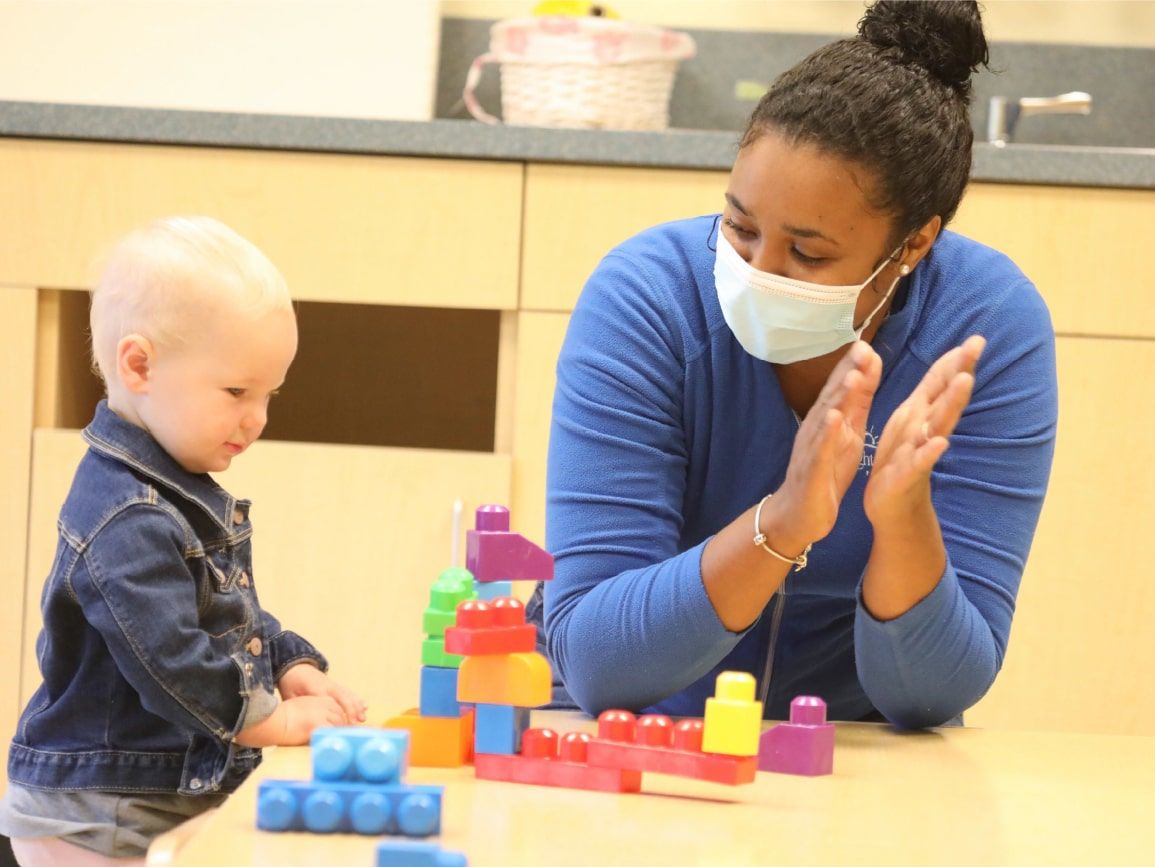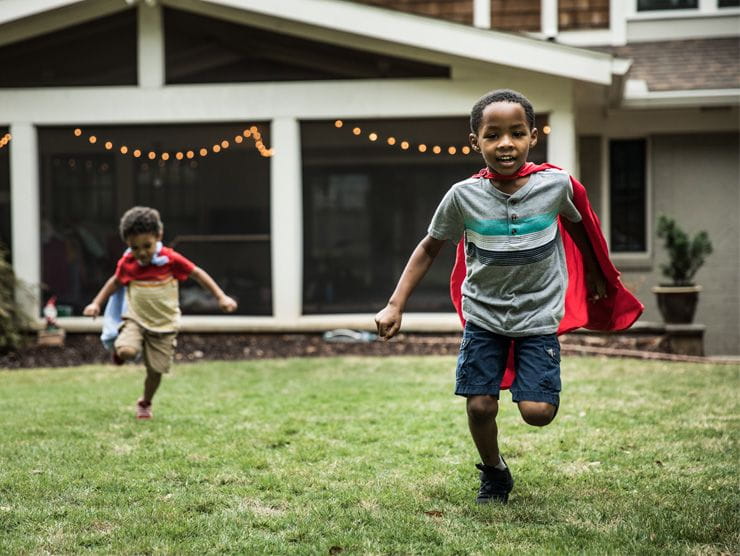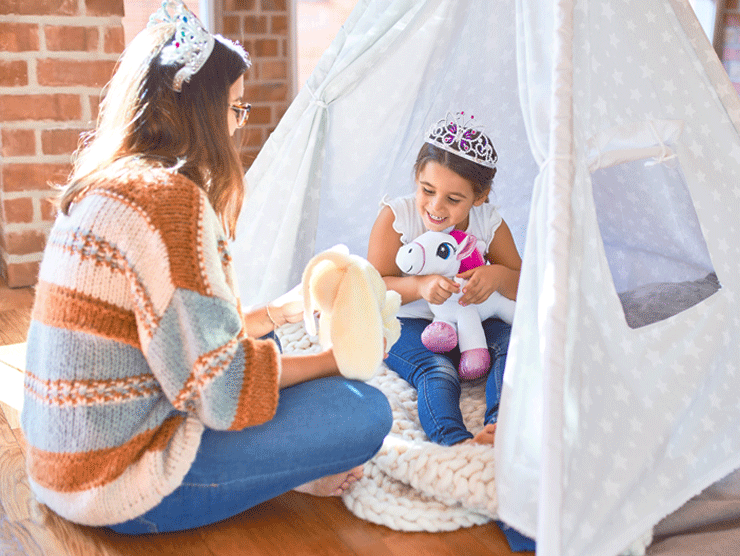The preschool years are a remarkable period of growth, marked by rapid emotional, social, and cognitive development. During this time, children begin to form their sense of self, explore relationships, and make sense of the world around them.
One of the most powerful tools in supporting this development is consistent and positive communication. The words we use with young children shape their self-esteem and motivation, spark their curiosity, and help them learn to manage their emotions.
The lasting impact of encouragement in early childhood
Encouragement plays an essential role in the early childhood years, shaping not only how children perceive themselves but also how their brains develop. During a child’s preschool years, their brain is especially responsive to positive guidance, and the language adults use can significantly influence neural pathways related to self-worth, motivation, and emotional regulation.
While praise feels good in the moment, encouragement builds lasting self-worth. Offering encouragement to your preschooler can:
- Foster Internal Motivation. Encouraging words helps children feel proud of their own efforts, not just because someone else told them they liked it, that they did well, or gave them a sticker. Children begin to seek out challenges because they enjoy learning, not just for praise.
- Build Resilience. When we highlight effort over outcome, or process over product, children learn that mistakes are part of learning. This builds grit and helps them bounce back after setbacks.
- Support Healthy Self-Esteem. Praise can sometimes create pressure to keep performing or being “the best”. Encouragement reinforces a child’s value for who they are and what they’re trying, not just what they achieve.
- Promote Independence. Children who are encouraged become more confident in their abilities to make decisions and solve problems on their own.
- Deepen Connection. Encouraging language shows your child you’re paying attention to their unique experiences, not just judging outcomes. This creates a foundation for trust and emotional security.
By validating a child’s emotions and recognizing their perseverance, we help them develop the confidence and coping skills they need to thrive both now and in the future.
5 encouraging phrases that build confidence in preschoolers
Watch how these simple situations can become powerful chances to boost your child’s confidence:
- Fostering curiosity and risk-taking. When your preschooler finally takes a bite of that new vegetable you’ve been gently encouraging, it’s a big win! Instead of saying something like “Good job!”, celebrate this moment with a phrase like: “I love how you were brave and tried something new today!”
This kind of encouragement not only reinforces your child’s willingness to explore but also helps them associate trying new things with positive feelings, self-confidence, and pride. - Encouraging resilience. Your preschooler is working on a tricky puzzle or trying to zip up their jacket all by themself. They might become frustrated, but they keep trying until they finally succeed. Instead of saying something like “I’m proud of you. That took a long time!”, this is a perfect moment to say: “You didn’t give up, even when it was hard. I’m proud of how you kept trying and hope that you feel proud of yourself!”
This kind of encouragement helps children recognize the value of persistence and builds their inner strength to face future challenges with confidence. - Reinforcing empathy and kindness. At school, your child offers a comforting hug, to a friend who’s feeling sad at drop-off. These small but meaningful acts of kindness are powerful moments to highlight. Instead of saying something like “You’re so great!”, you can say: “You saw that your friend was feeling sad this morning after saying goodbye to their parents. Offering a hug was a really kind and thoughtful thing to do.”
Acknowledging these behaviors help children understand the value of empathy and encourages them to continue building positive and caring relationships with others. - Promoting responsibility. You ask your child to clean up their supplies after a fun art project. This is a great opportunity to acknowledge their sense of responsibility. Instead of saying something like “I like how you cleaned up.” You can say: “I noticed how carefully you cleaned that up. You really took your time to put everything back where it belongs so you can find it next time.”
Recognizing their effort in these small and simple tasks can help children take pride in being responsible and encourages them to follow through with care and independence. - Normalizing setbacks and mistakes. Your preschooler offers to help make your coffee but spills the milk while trying to pour it themselves. During the clean-up process, instead of saying something like “You’re so good at cleaning, you’re a great helper”, you can say: “You’re working so hard to get that spill cleaned up. You’re using the sponge and getting all the milk. Thank you for helping! We can practice again tomorrow morning.”
This kind of response helps children understand that errors are a natural part of growing and learning. It encourages a growth mindset and reduces fear of failure by showing that mistakes are not something to be ashamed of, but opportunities to try again.
The dos and don’ts of encouraging preschoolers
While encouragement is powerful, it’s important to be mindful of the language we use. Some common phrases associated with praise, though well-meaning, can unintentionally create pressure or shift a child’s focus away from effort and growth.
When using encouraging language with children, make sure to:
- Be specific and genuine with your praises. This will help your child understand what exactly it is they did well.
- For example, by saying “You’re so smart!”, children might start connecting their worth to being right or perfect, rather than valuing the learning process. Instead, try highlighting their effort with something like, “You worked really hard on that.”
- Focus on their effort, not just the outcome. Highlighting the process reinforces a growth mindset.
- Even phrases like “That’s perfect!” can set unrealistic expectations. Instead, you might want to say, “I love how you kept on going until you were happy with it.”
- Match encouragement with eye contact, tone, and body language. A warm tone, a smile, and gentle eye contact can make your encouragement feel even more meaningful. Let your child know you truly see them and their efforts.
- Encourage problem-solving and independence.
- Avoid comparisons with other children.
- Comparing a child to others by saying something like, “Why can’t you be more like your sibling?” damage self-esteem and create unnecessary competition. A more supportive approach would be, “Let’s focus on what you can do better next time.”
These small shifts in language can help children feel safe to explore, fail, and grow.
Other ways to build emotional strength in young children
Besides words of encouragement, there are many everyday practices that can help nurture a preschooler’s confidence and emotional health, all of which are essential for emotional well-being during the preschool years.
Try:
- Creating an emotionally safe space at home where curiosity is welcomed.
- Acknowledging your child’s feelings and emotions.
- Providing age-appropriate responsibilities.
- Asking questions to promote problem-solving
- Offering simple, yet empowering choices
- Sticking to consistent routines.
At Bright Horizons, we understand the importance of nurturing both academic and emotional growth during these early years. Our approach to early learning is rooted in creating emotionally safe and engaging environments where children feel supported to explore, express themselves, and develop the skills they need for school and life. With programs designed to meet the unique needs of every family, we’re here to help your child thrive.
Ready for the next step? Find a Bright Horizons preschool program near you and discover how we can support your child’s journey toward confidence and school readiness.





